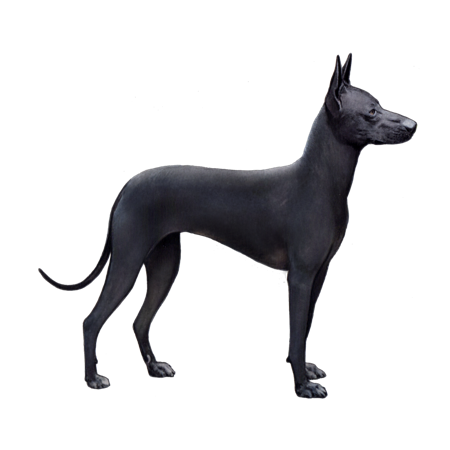
Soft Coated Wheaten Terrier
Praised by farmers as a general-purpose dog—and a gentle, loving companion—the Soft Coated Wheaten Terrier is one of the top working terriers in Ireland. Smart and alert, Wheatens are also excellent watchdogs and make ideal pets for families with kids.
Interested in discovering if your dog is a Soft Coated Wheaten Terrier?
Check out Wisdom Panel's DNA tests.

Soft Coated Wheaten Terrier Traits
General Appearance
Medium in size, the Soft Coated Wheaten Terrier is sturdy and well-proportioned.
Coat and Coloring
Soft Coated Wheaten Terriers may be any shade of wheaten color—from a milky white to reddish—and tend to darken with age. The breed's muzzle may sometimes have blue-gray shading.
Distinctive Physical Traits
The Wheaten's show-winning feature is its soft, silky, loosely waved coat that's similar in color to that of ripening wheat.
Soft Coated Wheaten Terrier Temperament
Soft Coated Wheaten Terriers are a cheerful breed. They love human companionship—showing unwavering loyalty to family—and are good with kids.
Smart and independent, Wheatens may chase wildlife or motor vehicles and can be difficult to disengage from an activity. They may also be suspicious of strangers and unpredictable with other dogs and pets. So, early socialization is a must.


Soft Coated Wheaten Terrier History
Dating back to sometime between the late 18th century and early 19th century, the Soft Coated Wheaten Terrier is one of the oldest terrier breeds native to Ireland.
Created as an all-purpose farm dog and companion, the Soft Coated Wheaten Terrier proved talented at a variety of farm-related tasks—including herding, watching and guarding livestock, and hunting vermin.
The Soft Coated Wheaten Terrier earned recognition from the Irish Kennel Club in 1937 and came to the United States in 1946. The breed then gradually gained popularity thanks to the Soft Coated Wheaten Terrier Club of America (established in 1962) and recognition by the American Kennel Club in 1973.
Soft Coated Wheaten Terrier Care
Nutrition
The Soft Coated Wheaten Terrier requires high-quality, age-appropriate dog food. You should monitor how much your Wheaten eats, and reduce portions if your pup gains excess weight. Also, remember that giving too many treats in addition to regular meals can contribute to obesity.
Grooming
The Soft Coated Wheaten Terrier's silky coat needs a moderate amount of grooming. Regular brushing will help get rid of dirt and loose hair.
Regardless of breed, grooming routines should also include trimming nails, cleaning ears, and brushing teeth.
Exercise
Soft Coated Wheaten Terriers have a fairly high energy level. They love being a part of family activities, enjoy attention and physical exercise, and excel at dog sports—such as agility, flyball, tracking, and obedience.
But keep in mind that a strong prey drive gives Soft Coated Wheaten Terriers the urge to chase. So, you should limit playtime to a fenced-in yard or use a leash.
Training
Despite their intelligence, Soft Coated Wheaten Terriers can be stubborn and headstrong—making training a challenge. So, be sure to start obedience training early before any undesirable behaviors have set in.
Wheatens respond well to reward-based obedience training. This includes consistent, firm discipline (without harsh words) and using motivational tools like treats and favorite toys.
Early socialization with people and animals is necessary for this breed.

Soft Coated Wheaten Terrier Genetic Health Conditions
-
Degenerative Myelopathy
Degenerative Myelopathy (DM) is a neurological disorder, usually affecting dogs in their senior years. Loss of hind limb coordination is an early sign of disease, and as the condition progresses the hind limbs of affected dogs become increasingly weak.
-
Microphthalmia (Discovered in the Soft-Coated Wheaten Terrier)
Microphthalmia is an eye disorder present from birth where affected puppies to have abnormally small and underdeveloped eyes.
-
Paroxysmal Dyskinesia
Paroxysmal dyskinesia (PxD) is a neurological disorder causing episodes of abnormal tone or movement of limbs. Affected dogs seem normal between these episodes.
-
Protein Losing Nephropathy
Protein Losing Nephropathy (PLN) is a disorder in which affected dogs lose protein through their kidneys, leading to kidney failure over time. This variant has been identified in Airedale Terriers and Soft Coated Wheaten Terriers.
Knowing if your Soft Coated Wheaten Terrier is a carrier or at-risk for these conditions can help you and your veterinarian plan for your pup’s lifelong care. With Wisdom Panel™ Premium, you can get results for over 200 genetic health tests.
Breed Group
Terrier
The Terrier Group ancestors were bred to hunt and kill vermin. They are often characterized as feisty and energetic dogs whose sizes range from fairly small to much larger.





















































